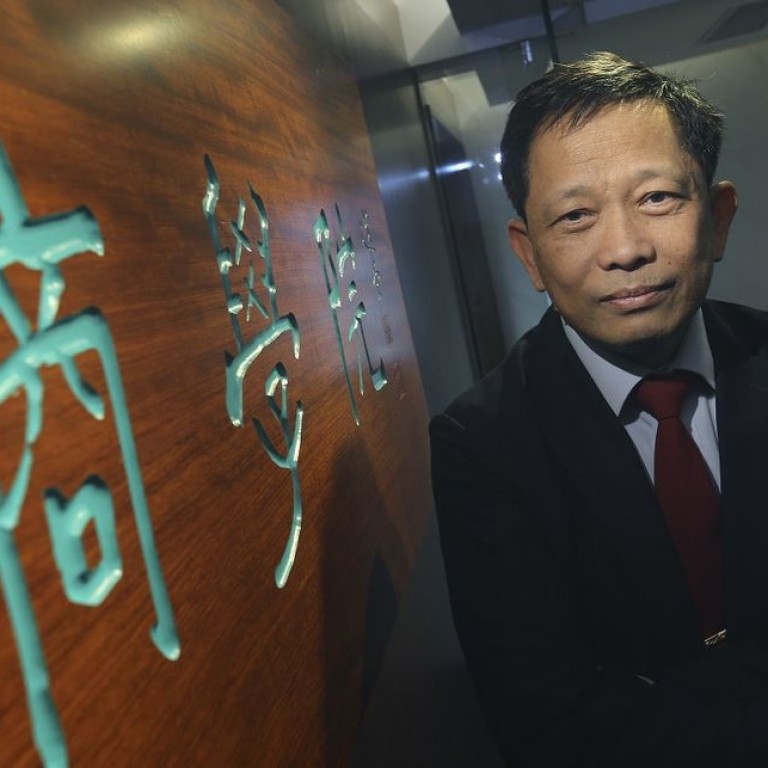
CityU's MA in global business management takes a global approach
[Sponsored Article] Executives require an evolving set of skills to make their mark in the world of international business. To get ahead, they must, of course, have a good all-round understanding of finance, commercial transactions, organisational structure and leadership.
[Sponsored Article]
Executives require an evolving set of skills to make their mark in the world of international business. To get ahead, they must, of course, have a good all-round understanding of finance, commercial transactions, organisational structure and leadership. But they also need the ability to operate effectively in an environment where fast decision-making, strategic vision, and an appreciation of the power of technology are prerequisites for future success.
The aim of the MA in global business management (MAGBM) at City University (CityU) is to provide all that. Offered as either a one-year full-time course, or a two-year part-time course, it is specifically designed to give students the knowledge and insight to deal with the full range of challenges inherent in running an ambitious modern enterprise.
“In terms of content and delivery, the course is deliberately global, not China-centric, and we make a point of combining theory and practice,” says Dr Reuben Mondejar, associate professor in the department of management at CityU’s College of Business. “In some respects, globalisation and technology have made the world a small village. But many new factors are coming into play, and they all have to be considered as part the general decision-making process.”
Prospective students are drawn to the course for three main reasons. Firstly, they want to ensure they have the skills and know-how to keep progressing in an era of fast and sometimes dramatic change. Secondly, they see the value of enhancing their academic credentials with a further degree from one of the world’s top 200 universities; CityU’s College of Business was ranked number two in Asia in 2015. Thirdly, they want to prepare themselves for new challenges, higher levels of responsibility, and possible career shifts.
“Taking the MAGBM is a route towards those goals,” Mondejar says. “All the subjects included in the course are sensitive to the issues of globalisation and taught by an international team from different countries and continents.”
Instruction is through a combination of lectures, course work, group projects, and workshops or seminars led by respected guest speakers and leading industry practitioners. Students are trained to recognise the need for different approaches when dealing with companies or counterparts from different cultures. Every year, CityU offers a summer programme run by its international partner, the University of California at Berkeley, which is open to MAGBM students. Regular on-campus lectures by distinguished figures, including Nobel Prize winners, help to broaden horizons and shed light on issues that go beyond the usual confines of a business degree.
“The importance of ethics is embedded in every subject, and we talk about the universal bill of rights, the rules which all countries which are members of the UN should respect,” Mondejar says. “We also explain and debate the geopolitics of the world map, in particular China’s position as the world’s second-largest economy, the ‘One Belt, One Road’ policy, and the country’s growing superiority complex.”
A maximum of 40 students are admitted each year, with classes starting in September. About one third of each intake is from Hong Kong, one third from mainland China, and the rest from overseas. This strikes a good balance, and spurs classroom debate. Representing a wide variety of industries and backgrounds, recent cohorts have included students from Singapore, Germany, Russia, France, Canada and the US, as well as police superintendents, fashion models, civil servants, and musicians. Last year, there were close to 500 applications.
The basic requirements for admission include a second-class bachelor’s degree in any discipline, at least two years’ full-time work experience, and a high level of proficiency in English. GMAT is not required, though in certain circumstances, references may be.
Classes are generally held on weekday evenings two or three times a week, depending on the semester and subject. Teaching sometimes takes place on Saturdays. In total, students take 10 subjects, eight of which are compulsory. This gives a solid grounding in everything from multinational strategies to comparative management techniques and managerial practices in the mainland.
Along the way, there are opportunities to take part in classes with students from eight universities around the world, including Stanford University in the US, Peking University, and notable institutions in Europe and the Middle East.
“The course has been running for over 20 years and, in Hong Kong, it is the only one of its kind,” Mondejar says. “It equips students with the skills to keep up with sophisticated trends in trade and commerce, giving them the integrated understanding of finance, economic and geopolitics needed to manage across international borders and cultural boundaries.
“Upon completion, graduates have appreciable new skills and competencies in the global dimensions of key business functions,” Mondejar notes.
